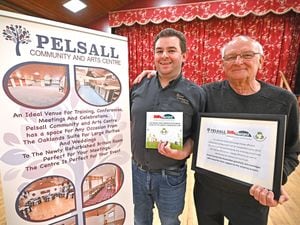Councillors getting to the root of popular weed killer
A probe has been launched into the use of a controversial weed killer used on roads and pavements across the Dudley Borough

Members of Dudley Council's housing and public realm scrutiny committee will look at the use of glyphosate.
The chemical is used to tackle weeds in public spaces across the borough, but has prompted criticism over its use.
A report detailing the advantages and disadvantages of the pesticide will now be put before the committee along with suggestions for alternative methods of weed control.
It follows a petition calling the chemical weed killer 'toxic'
The petition says: "We call on Dudley Council to propose to a ban on glyphosate, stop blanket spraying of our neighbourhoods, parks and schools, and rethink how we interact with nature in our towns.
"Ban glyphosate-based herbicides, exposure to which has been linked to cancer in humans, and has led to ecosystems degradation; look at alternative methods of managing weeds, mow less to allow flowers and plants to thrive which benefit pollinating insects, encourage greater community involvement, with a view to achieving a pesticide-free future.
"Dudley Council spend upwards of £24000 per year on pesticide spraying, and are unable to tell us what the risks of using Glyphosate are. Let's change our thinking, save money for the council, keep and children and pets safe, and allow bees and butterflies to flourish."
Dudley's public realm boss Councillor Karen Shakespear said: "It is absolutely vital we control the growth of weeds both for safety reasons on roads and pavements, to reduce damage to the highway infrastructure, and to ensure our borough continues to look inviting and welcoming.
"People have told us that tackling weeds is important to them and we have continued to invest in this area.
"The use of glyphosate has been the source of debate and we have therefore asked our scrutiny process to have a detailed look at its use, as well as any alternatives that might be available to control weeds.
"They will be looking at how it is used, how temperature and weather can affect it and any disadvantages and limitations for the chemical, so that we can make an informed decision on its future use.
"However, one thing is for certain, we must continue to do all we can to tackle weeds across the borough for everyone’s benefit."
Glyphosate, an herbicide, has been a commercial success since its introduction in 50 years ago.





